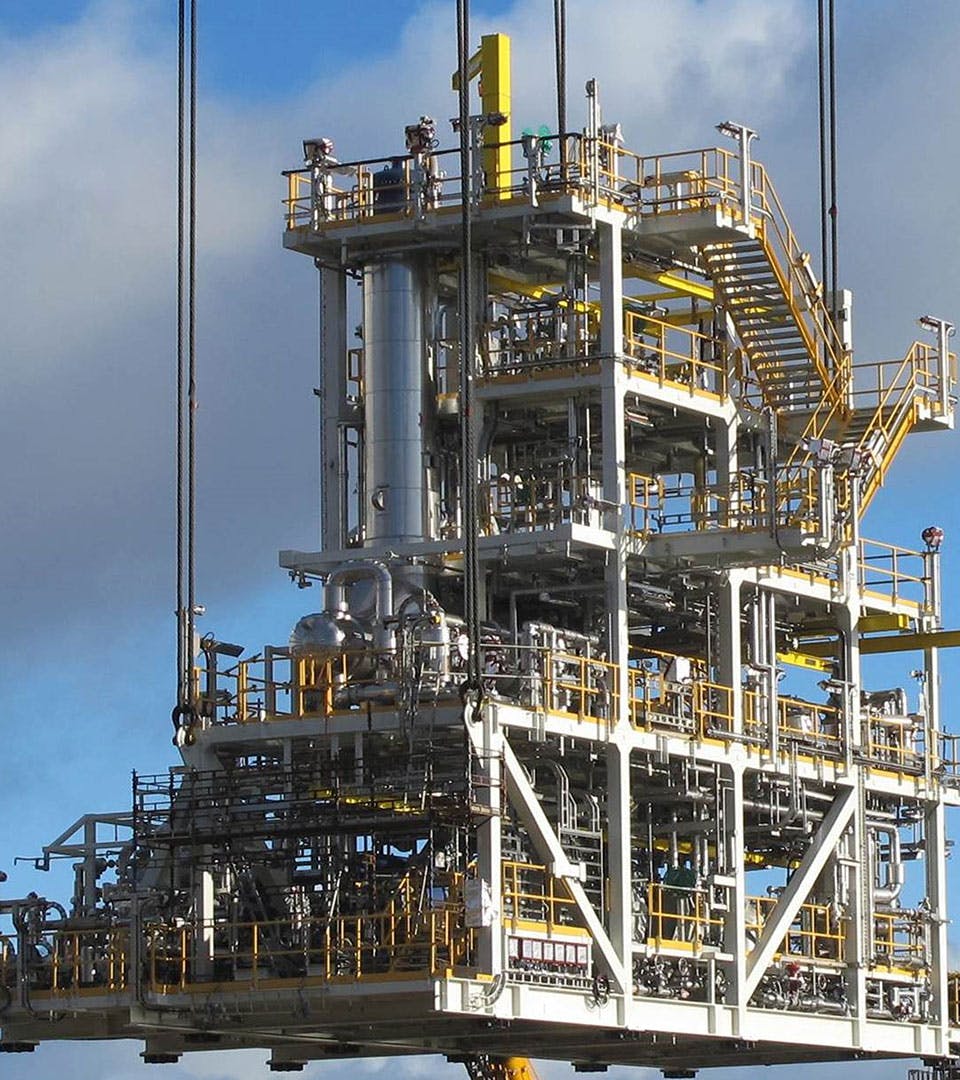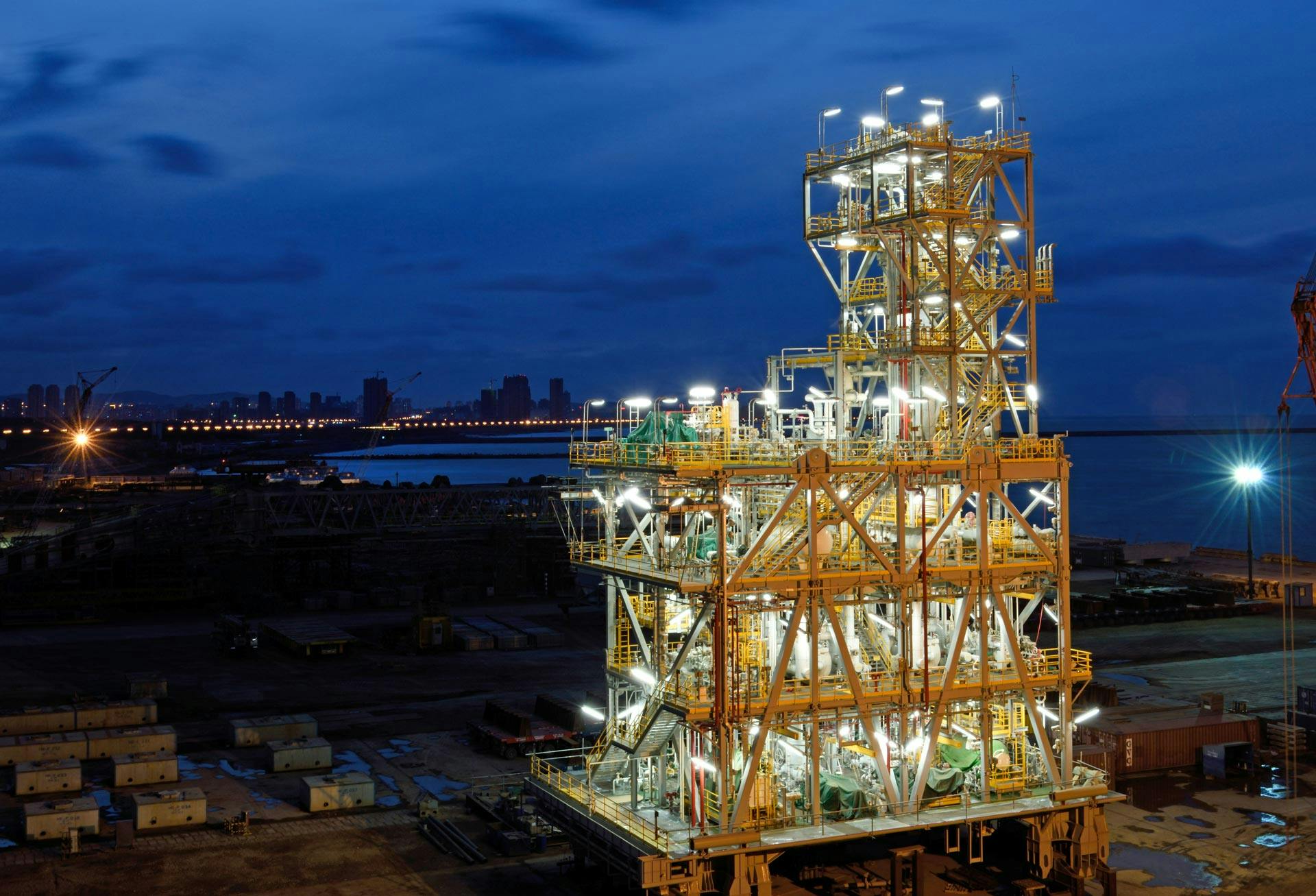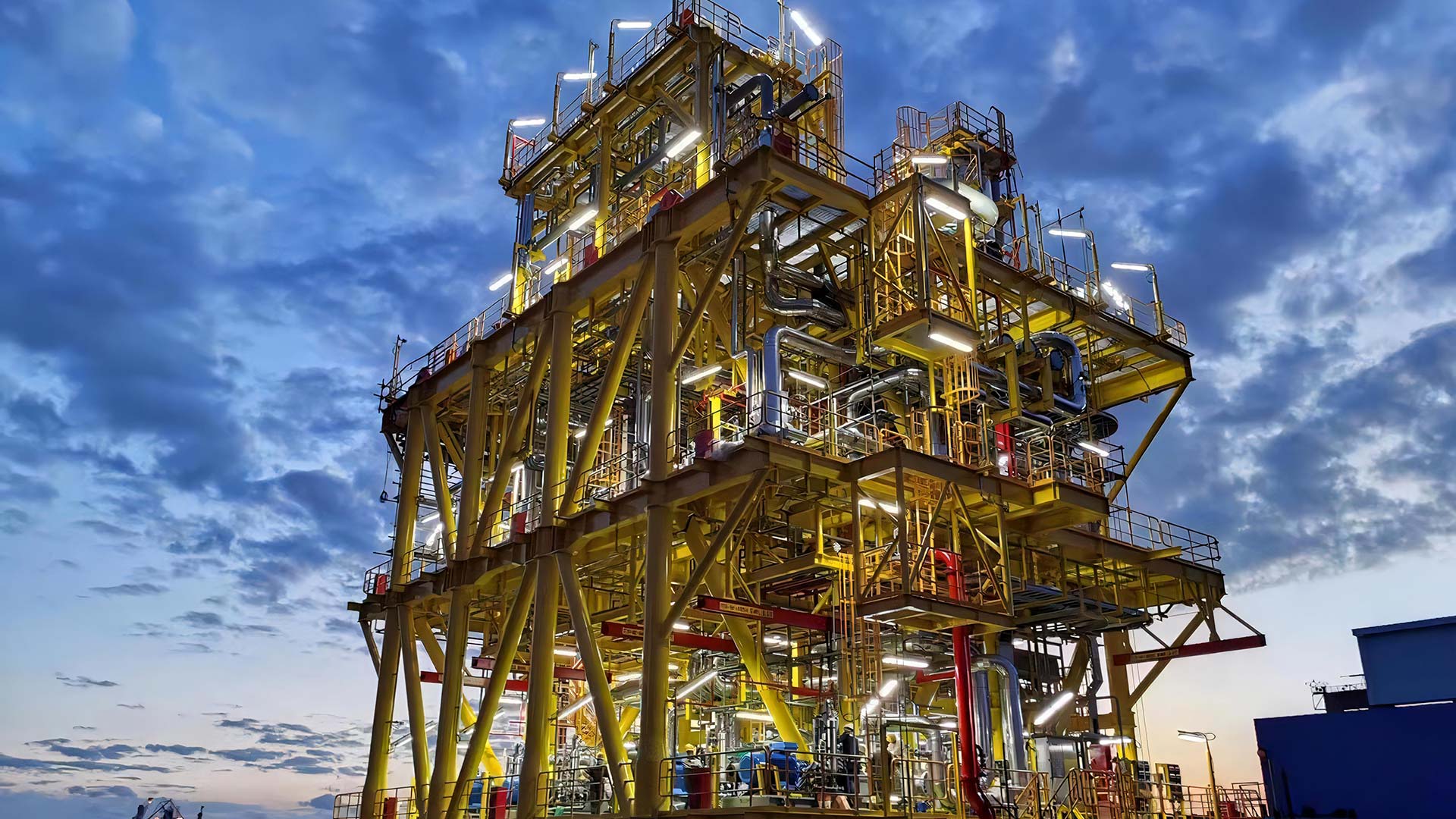MEG Recovery
We provide an extensive portfolio of MEG technologies developed on decades of field-based experience and extensive research by our team of subject matter experts.
With our unrivaled experience in the design and delivery of monoethylene glycol (MEG) regeneration and reclamation units worldwide, we can provide the optimum solution to fit client and field specific needs. Our slip-stream and full-stream concepts have been extensively developed, tested, and operated, resulting in continuously improved products.
We move efficiently from consultancy, to design, supply of components, and complete processing systems, which includes testing, qualification, and start-up. Our system optimization analysis for greenfield and brownfield projects is backed by more than 40 years of wellstream process research, development, and operational support. Our laboratory modeling techniques and computational fluid dynamics can display how to achieve peak processing performance. Our MEG technology pilot plant can test equipment efficiency, with actual field fluids and qualify candidate chemicals.
We provide critically important feasibility studies, concept definitions, front-end engineering design (FEED), enabling our customers to make the right decision based on relevant cost and time considerations. In addition to our consultancy, equipment delivery, commissioning, start-up and operational support, we also provide aftermarket services for our installed equipment, including maintenance, optimization, spare-parts management, and user training.
We offer a true end-to-end service, every element reflects our superior expertise and commitment to perform. Through our products and services, we enable maximum value at minimum cost to our customers.
Through our expert understanding of field chemistry and the overall MEG loop, combined with our vast experience with particle and corrosion product management, our solutions are particularly robust, offering high availability and low MEG losses.
We have extensive knowledge of the impact of production chemicals and with our testing facilities, we can advise on their handling and clean-up with our MEG reclamation system. Our vast in-house technology portfolio enables us to bundle the MEG system with upstream hydrocarbon removal and downstream produced water treatment, offering a seamless route to meeting requirements while reducing weight, footprint, utilities, and cost.
Full-stream MEG regeneration systems
Our full-stream MEG regeneration systems treat the entire rich MEG feed for removal of salts, corrosion products, organic acids, and other impurities. The design produces a clean, lean MEG stream that reduces the risk of scaling in the subsea system. The combined re-concentration and reclamation process is performed under vacuum, minimizing energy consumption, whilst avoiding thermal degradation conditions for MEG.
Our design has been developed over time to ensure reliability, efficient salt handling, and low MEG losses.
Slip-stream MEG regeneration systems
In this instance, the MEG is pretreated to remove hydrocarbons, low-soluble salts, and corrosion products before the water is removed through distillation. A slip stream of lean MEG is treated in a vacuum reclaimer to control the content of high-soluble salts.
The slip-stream system design gives high reliability, operational flexibility, and low energy consumption, in addition to efficient salt handling and low MEG losses. This concept enables the design of systems with very large capacities.
Advanced MEG
The advanced MEG systems combine the full- and slip-stream processes with advanced technologies to improve handling, removal of hydrocarbons, organic acids, mercury, kinetic hydrate inhibitors, and other impurities from the closed MEG loop.
Conventional MEG
When there is no formation water, no salt production is expected from the reservoirs, conventional regeneration systems are used to distill the rich MEG feed and meet the required lean MEG concentration. Tie-ins can be prepared for retrofitting a slip-stream vacuum reclaimer for added flexibility and security.
Our conventional MEG regeneration systems combine state-of-the-art technology with low costs and minimal footprint.
Selected References MEG Recovery Catalog
BP - West Nile Delta Development Case HistorySupplying system design and key equipment for onshore MEG reclamation
Petronas FLNG-2 Case HistoryGlycol regeneration and reclamation assuring flow from deep water gas field
MEG Recovery Unit Training FlyerTraining in operation and maintenance principles of MEG Recovery Units
MEG Loop Chemistry Training FlyerTraining in MEG Loop Chemistry principles and operational procedures for a slip stream system
MEG Regeneration Optimization Case StudySolution for increased availability

Conventional MEG system

Full-stream MEG regeneration system
Related Products
Process Systems
We deliver equipment and solutions to the upstream oil and gas industry for the separation and treatment of oil, gas, solids, seawater, and produced water.
Gas Treatment
We provide an extensive portfolio of gas treatment technologies, including dehydration, sweetening, hydrocarbon dewpointing, and compression for gas.
Process Systems Testing Services
We provide a unique, versatile once-through testing service, enabling you to develop, optimize, and quantify produced water and separation technologies under field conditions.
Produced Water Treatment
Our comprehensive produced water portfolio allows us to deliver safe, compliant, customer-oriented results necessary for responsible energy production.
Brownfield Solutions
We optimize process systems, remove production bottlenecks, improve environmental performance, and support operations through a global network of specialists and a commitment to service.
Process Intelligence Manager MEG
Our Process Intelligence Manager transforms the operations of MEG recovery facilities by providing operators with unique insights into system behavior and health status.
